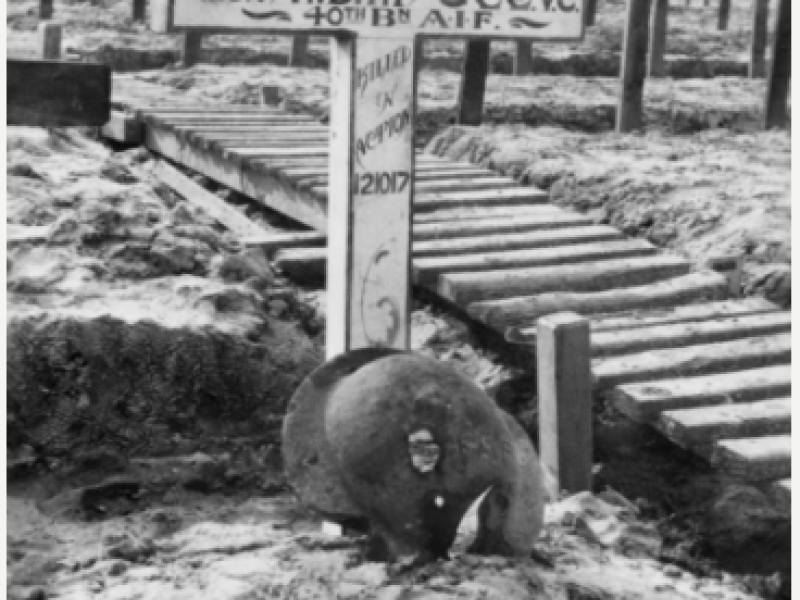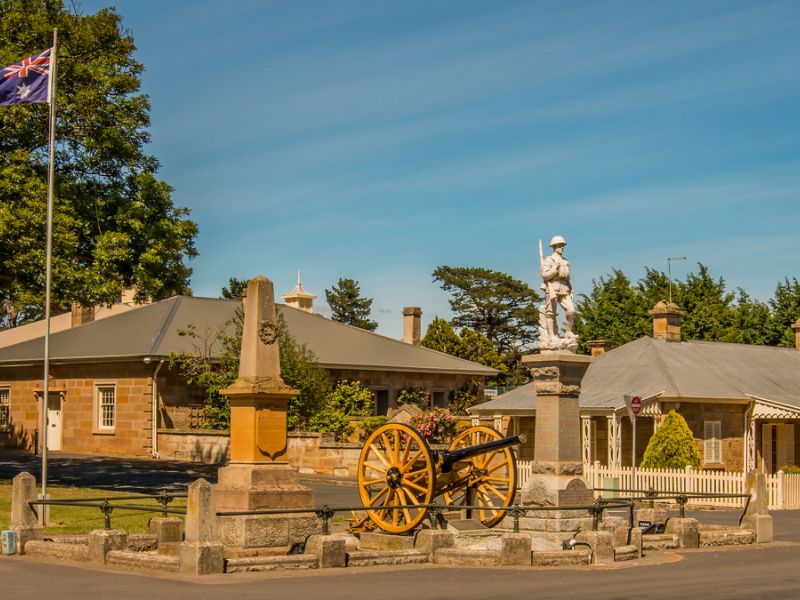Sergeant Lewis McGee, 40th Battalion, AIF
Lewis “Lew” McGee was born on 13 May 1888 at “Verwood”, near Ross in central Tasmania, the youngest of 11 children born to John and Mary McGee.
McGee’s mother passed away when he was seven, and the family moved north to Avoca. Later, McGee worked as an engine driver and was a talented local sportsman in the Avoca Cycling Club.
On 15 November 1914, he married Eileen Rose Bailey and their daughter, Nada, was born in 1915.
McGee was one of the first men to volunteer for the newly formed 40th Infantry Battalion in Tasmania on the 1st of March 1916.
McGee arrived in England in August 1916 and in November, sailed for France. Throughout the cold winter months they occupied waterlogged trenches around Armentieres in northern France, under intermittent enemy shell-fire, and conducted raids on German lines. McGee, a talented and capable soldier, was quickly promoted to sergeant.
In May 1917, the 40th Battalion moved north to Ypres, Belgium. On 7 June they fought in the battle of Messines in which Australians suffered nearly 7,000 casualties.
On 4 October, they participated in the bloody fighting at Broodseinde, in the advance towards Passchendaele village. In torrential rain, Australian and New Zealand troops advanced across no man’s land. McGee and his platoon came under intense German artillery and machine-gun fire from a fortified concrete structure known as a pill-box.
As his platoon sought cover in shell holes, McGee, armed only with a revolver, leaped to his feet, crossed 50 metres of open ground towards the pill-box, and killed or captured the German occupants. His heroic action allowed the rest of his platoon to advance and successfully finish the battle.
For his “conspicuous bravery”, McGee was awarded the Victoria Cross, the highest award for gallantry in the face of the enemy. His citation said “he led his platoon with great dash against all obstacles under heavy fire”, and that “Throughout the whole operation, his bravery and coolness stood out as a splendid example to everybody”. He was also recommended for a commission.
Just eight days later, on 12 October 1917, 40th Battalion manned the front line trenches in pouring rain and deep mud in the First Battle of Passchendaele.
One report states that McGee said to a fellow soldier, “How glad I am to be here; I wouldn’t have missed this for anything”. He then called out: “Steady, lads; keep a good line”.
Heavy German machine-gun fire rained down. McGee stood firm and began to rush the enemy but was killed instantly by a bullet wound to the head.
He was 29 years old. His grieving wife was presented with his posthumous Victoria Cross in Launceston in March 1918.
Today McGee’s remains lie buried in Tyne Cot Cemetery in Belgium, in sight of the area where he won his Victoria Cross, and less than a kilometre from where he was killed.
David Sutton, Military History Section

 Australian War Memorial
Australian War Memorial